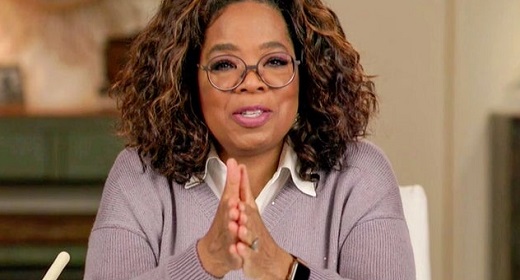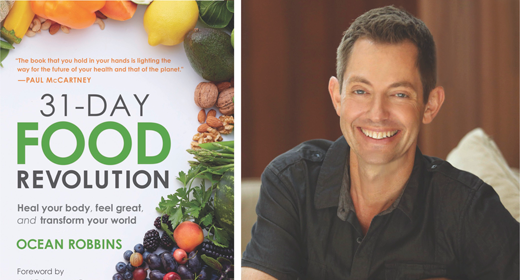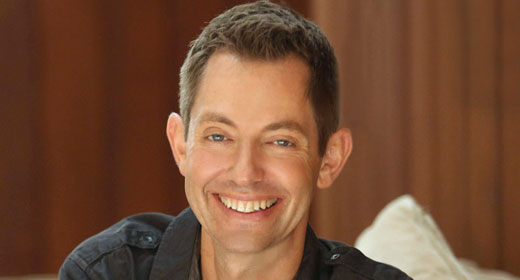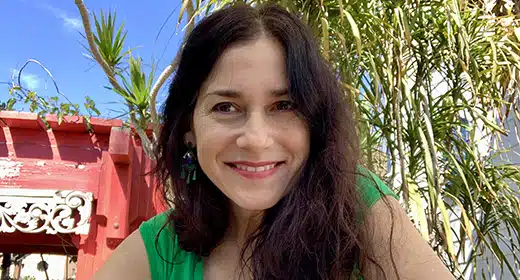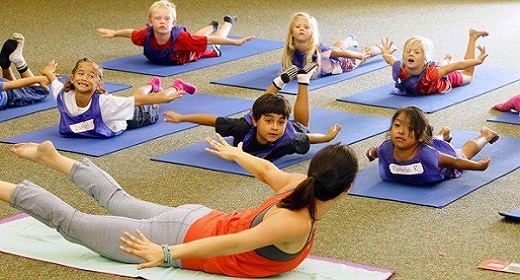by Ronna Kabatznick: Marshall Rosenberg, founder and director of education services for the Center for Nonviolent Communication (CNVC), is a traveling peacemaker.  He visits about thirty-five countries every year to meet with people in places riddled with conflict, violence and suffering. It’s his job to promote reconciliation and peaceful resolution to situations that most people see as hopeless or impossible. Israel, Palestine, Ireland, Russia, Rwanda, Burundi, Nigeria, Serbia and Croatia are some of the international hot spots he visits to help angry, bitter and hostile people learn how to identify their unmet needs and find connection to themselves and to each other. Not that it’s so easy. Screaming and name-calling (“Nazi!” “Murderer!”) are all part of a day’s work.
He visits about thirty-five countries every year to meet with people in places riddled with conflict, violence and suffering. It’s his job to promote reconciliation and peaceful resolution to situations that most people see as hopeless or impossible. Israel, Palestine, Ireland, Russia, Rwanda, Burundi, Nigeria, Serbia and Croatia are some of the international hot spots he visits to help angry, bitter and hostile people learn how to identify their unmet needs and find connection to themselves and to each other. Not that it’s so easy. Screaming and name-calling (“Nazi!” “Murderer!”) are all part of a day’s work.
Whether he’s working in a war-torn area or an inner-city slum, Rosenberg’s goal is the same: to teach and encourage compassionate communication. Unpretentious in both his dress (he often wears crewneck sweaters) and his demeanor, Rosenberg bypasses cultural norms and local etiquette by heading to the heart and teaching people about the feelings and needs that unite humans regardless of age, race, ethnicity, religion or gender. To illustrate his points, he strums his guitar, sings and uses two puppets.
Trained as a clinical psychologist, Rosenberg became fed up with the diagnostic system of labeling people as sick or disturbed. He believes that this dehumanizes people and undermines reconciliation. Remarkable stories of healing and transformation fuel Rosenberg’s energy and faith in the process he teaches. A Rwandan woman caught in the crossfire of loyalties (she is a Tutsi and was married to a Hutu) became a victim of both sides when the Hutu killed her family and the Tutsi killed her husband. Her work with Rosenberg enabled her to transform this tragedy: “It is by looking at the feelings and needs of each side that I have seen the conflict differently and have been able to experience real healing.”
Born in Detroit to Jewish parents, Rosenberg’s personal experience of anti-Semitism—being called a “kike”—helped him realize the pain and misery involved in hatred. Rosenberg began his reconciliation work when Detroit was literally burning in the fire of racial conflict. He was determined to find a way of speaking that would stop the need for violence. Over the past forty years, he has helped countless people, from politicians, police officers and prisoners to clergypeople, lawyers and gang members to reframe how they express themselves and how they hear others.
Ronna Kabatznick and Margaret Cullen interviewed Marshall Rosenberg by phone on May 10, 2004.Marshall Rosenberg: My trainings are based on an assumption that when we are clear and connected to ourselves, there’s nothing that we like better than to contribute to one another’s well-being. But there are a number of things that can happen that disconnect us from that. So for me, reconciliation is connecting people again so they enjoy contributing to each other’s well-being rather than contributing to each other’s suffering. By “connecting” I mean clearly seeing what’s alive in one another, with no enemy images.
Marshall Rosenberg: My trainings are based on an assumption that when we are clear and connected to ourselves, there’s nothing that we like better than to contribute to one another’s well-being. But there are a number of things that can happen that disconnect us from that. So for me, reconciliation is connecting people again so they enjoy contributing to each other’s well-being rather than contributing to each other’s suffering. By “connecting” I mean clearly seeing what’s alive in one another, with no enemy images.
Inquiring Mind: What do you mean by “enemy images”?
MR: If my child is not picking up the room and I say, “You are lazy,” lazy is an enemy image. If my life partner is not meeting my needs for intimacy and I say, “You are insensitive to my needs,” insensitive to my needs is an enemy image. When we say that some people are “terrorists,” that’s an enemy image. Enemy images turn people into things. When we see the other person as a monster, all we want to do is to punish them. This type of language disconnects us from what’s alive in one another, disconnects us from life
IM: Is the challenge of reconciliation a language problem?
MR: No. The language is part of a broader scheme of things. For about 8,000 years, we have been living under domination cultures in which a few people claim to be superior. Partner this with the belief that people are basically selfish and evil, then the people who claim to be beyond that feel as though they have to control the others. We’re educated to believe in authorities and their right to inflict punishment and suffering on us if we don’t do what they think is right. So this whole scheme requires a language.
IM: Does the enemy image have more to do with those who perceive it or those it is projected onto?
MR: An enemy image always has to do with the person who perceives it. It’s our thinking, not other people’s behavior, that makes us angry. Angry, judgmental and punitive thoughts are always an expression of our unmet needs. When people are out of touch with themselves they become good slaves to authority: loving women have “no needs” so they sacrifice themselves for their families; brave men have “no needs” so they’re willing to sacrifice their lives for the king or the president. If you want people to be docile and subservient, disconnect them from their needs. This shapes their brains to wonder how others are judging them instead of focusing on how to meet their unmet needs.
IM: Could you give us a concrete example from the international work that you’ve done in conflict resolution?
MR: About eight years ago, I was mediating between a Muslim tribe and a Christian tribe in northern Nigeria. In their conflict, a quarter of the population had been killed. At that time, they were fighting about how many places in the marketplace each side would have to display their products. I started the reconciliation process with them by saying that I was confident that if we could hear each other’s needs, we could find a way to get everybody’s needs met. Inviting whoever wanted to start, I asked: “What needs of yours are not getting met?” The chief from the Christian tribe screamed, “You people are murderers!” Notice that when I asked him what needs weren’t getting met, his response was to tell me what was wrong with the other side. This provoked a counter judgment. Somebody on the Muslim side screamed back, “You’ve been trying to dominate us! We’re not going to tolerate it any more!”
Because our training is based on the assumption that all violent language is a tragic expression of unmet needs, when the chiefs finished screaming, my job was to translate the enemy image of “murderer” into language describing the needs of the person who screamed. I said, “Chief, are you saying that your need for safety is not being met and you want some agreement that no matter what the conflict, that it be resolved some way other than violence?” He looked shocked for a moment because this is different from how people are trained to think. Then he said, “That’s exactly right!”
But getting the chief to acknowledge his need wasn’t enough. I had to get the Muslim side to see through their enemy image. I said, “Would somebody on the other side please tell me what you heard the chief say his needs were?”
A gentleman from the Muslim tribe screamed back, “Then why did you kill my son?” In fact, there were several others in the Muslim tribe who knew that someone present had killed one of their children. So there were a lot of feelings. The Muslim tribe had to put down their rage long enough to hear the needs of the Christian tribe. And that wasn’t easy. I had to give them some empathy before they could do that. But finally I got them to hear just one simple thing, that the Christian tribe had said they had a need for safety.
It took me about an hour and a half to get both sides to release the enemy image long enough to hear a need of the other side. At that point, one of the chiefs came up and said to me, “If we know how to communicate this way, we don’t have to kill each other!”
In another example, a group of Israelis and Palestinians on the West Bank were hoping to be able to work toward peace in that area. I asked, “What is it that you want from each other that would make it easier for you to work together?” The Palestinian mayor of the village responded by telling the Israelis, “You people are a bunch of Nazis.” Predictably, one of the Israelis fired back, “That was totally insensitive for you to say.” So instead of peace and harmony, they were creating violence and hostility. I helped them translate their judgments into what it was that they were wanting from one another. When you get people to talk about what they want from each other, instead of what’s wrong with the other, there’s a possibility for reconciliation to begin.
IM: What is the most inspiring story you know of people who have reconciled?
MR: I have been with a rapist and the person who’s been raped. The survivor was in so much pain that she hadn’t been able to sleep for three years. All she wanted was to have the rapist punished. Within two or three hours of helping each of them identify their unmet needs, they became concerned about each other and wanted to contribute to each other’s well-being.
IM: Must there be a powerful motivation for reconciliation? What if people feel too vulnerable to express their needs?
MR: Certainly some people might have the need to feel safe and protect themselves. But deep down inside, I think everyone has a deep and strong need to con-tribute to the well-being of others. No matter how much pain has gone on, that’s the motivating force. When we can see the needs of others, we see our oneness—not as an abstract concept, but as a reality.
IM: Have you been in circumstances where reconciliation seems impossible?
MR: It almost always seems that way when both sides have had every member of their family killed. The pain is so deep, I think, “Oh, my god, there’s no way!” But that’s my brain talking. My experience tells me that if I stay with the process and help these people connect, it’s inevitable that both parties are going to want to contribute to each other’s well-being.
IM: Even Yasser Arafat and Ariel Sharon?
MR: Get the two of them to agree to have me or someone else do backdoor diplomacy! People have done different kinds of peace talks and gotten quite different results from those that involve taking positions and creating mental justifications of their righteousness.
IM: Reading about what’s going on in the Middle East, in Afghanistan and Iraq, it often seems that stereotyping and conflict in the world are increasing, not decreasing. What is your perspective?
MR: I see a radically different world from the one you see in the newspaper. Such incredible things happen when I leave groups so that when I go back, I can hardly believe what they’ve accomplished in the time since I was last there. I see this everywhere I go. The people I work with want to radiate this kind of process and transform things. They want everyone to have access to these principles, and they have enormous energy for spreading this kind of work. It’s overwhelmingly delightful to me. It’s hard to know how to keep up with it.
IM: And the basis of that process? Could you say what it is that sustains it?
MR: What sustains reconciliation is a consciousness of divine energy and the realization that there’s no more fun game than contributing to life. The people that I work with worldwide know that we are really programmed in this other way even though at times all we want to do is punish and blame. They work very hard to stay connected to this divine energy and are usually part of a community of like-minded people.
IM: Do you think it takes some kind of meditation practice to stay connected to what is true and to be able to see through punitive thinking?
MR: I’m from Detroit, so I don’t use the word meditation. I see it as getting my shit together. This means getting clear on how I choose to live before I go out in the world. I also want to know how to get back to that place if I lose it during the day. In our training I talk about the importance of having a password. When I see myself losing it, I say a password real quickly so I can return to my consciousness of how I choose to live.
IM: Could you take us through that process? You’re in the airport and you feel enraged—what do you do?
MR: First, I know it’s not what the other person is doing that is making me angry. It’s my thinking. If I’m angry, I sit back and enjoy what I call the jackal show going on in my head. I know that all such language and images are tragic expressions of an unmet need. I say tragic because if we act out of that imagery, all we want is to punish or blame. I take the time to look inside and identify the need that isn’t getting met. Then I’m in the world that Rumi talks about: “This place beyond right and wrong doing, I’ll meet you there.”
IM: Wouldn’t meditation practice help us in our capacity to arrive at this place and to bring a spirit of reconciliation to the world?
MR: I think some people’s practices do. Meditation helps people become more aware of the thinking process, and that’s a good thing. I have found, and research confirms this, that within every religion there are two radically different groups of people in terms of how they experience the identical religious practices. Some people get tremendous energy from their practice and work hard to transform the social structures that are starving and oppressing people. Others engage in the same practice in a way that gives them comfort and tolerance with living in the world as it is.
IM: Do you think it’s everyone’s job to transform the structures?
MR: If people have what is called transformative spirituality, they cannot rest when others are dying of starvation. It’s not enough that they believe that if they purify the self, energy will radiate to take care of things.
IM: What about dealing with inner violence?
MR: This is a big part of our training. We show how to give empathy and connection within ourselves and with the people with whom we have daily contact. This helps reshape the structures that are contributing to the violence on our planet.
IM: You’ve told some very inspirational stories over the years of remarkable people who were able to respond to difficult circumstances and still keep their hearts open. What do you think allows these people to do this?
MR: I go around the world and speak with people who have had such horrible things happen to them that I can hardly even imagine how they’ve stayed so compassionate. So I ask them, “What have you seen from others that has helped you stay conscious of compassion?” Almost always it’s one of their parents or both who helped educate them to escape the reward-and-punishment paradigm.
M: Can we develop such qualities later in life?
MR: I think they are natural qualities and part of our intrinsic nature. Gandhi tells us not to mix up what’s natural with what’s habitual. If we haven’t been programmed to be this way, that doesn’t mean it isn’t natural. We can develop our true nature even if it requires a tremendous effort to get beyond all the programming in the other direction.
IM: Some of the transformations you describe seem to happen so quickly. How is that possible?
MR: When we get people to experience a certain quality of connection to the pain that’s been inside a long time, it can be rapidly transformed. Day in and day out, I do healing work with people who within thirty minutes have a major breakthrough in terms of how they relate to the world. I’m not saying, “Come into psychotherapy with me for three or four years, two or three times a week, and we’ll really take care of you.” No, I’m saying thirty, forty minutes with people is what it takes to give them a real taste of what it’s like to liberate themselves from deep habits.
IM: When does it become part of our evolutionary makeup and when is it just a cognitive thought that can be replaced?
MR: When a critical mass of people find it much more gratifying to serve life than to destroy it. This mass, called Cultural Creatives, is rapidly evolving and keeps growing. We are now actively involved in trying to connect networks of people so that they can synergistically work together to speed up the process.
IM: It seems that, from what you’re saying, the minority is growing, but right now many Americans are in a very dark place with what’s going on in the world.
MR: There’s a Hungarian named Ervin Laszlo who wrote a book called Macroshifts. He points out that there has been a series of times throughout evolution where things come to a point: either there’s an opportunity for a radical change in a positive direction, or there’s death and total destruction. I think we are at such a point, and I’m confident we can transform this horror into something precious. But it’s going to take an enormous concerted effort on the part of those blessed to see that there is another way.
IM: But hatred is so addictive. It often seems that feelings like empathy and understanding don’t have a chance.
MR: No matter what pain has gone on, if we connect people in a human way, their nature is to reconcile and to understand each other’s needs. What’s more addictive than hatred is compassion.
For more information about Nonviolent Communication and the work of Marshall Rosenberg, please visit www.cnvc.org.
Ronna Kabatznick is a psychologist and is currently on retreat in Thailand. Margaret Cullen is a marriage and family therapist, mindfulness-based stress reduction teacher, and longtime vipassana practitioner. She lives in Berkeley with her husband and ten-year-old daughter.


